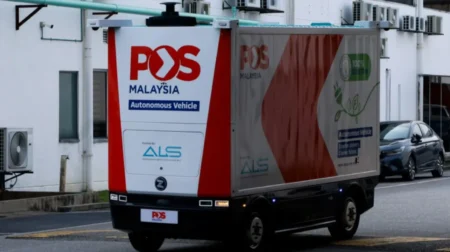Robotics company Starship technologies has announced the extension of a pilot using food delivery robots on the University of Illinois’s campus to cover other parts of the city.
The university reportedly approached Starship after more than twelve months of the initial pilot, asking to include areas in the wider community. The extension has been approved by the city council.
Chicago authorities are expected to re-examine the robots’ boundaries as testing continues; on this, Kenneth Meyer, commissioner of the Chicago Department of Business Affairs and Consumer Protection, said: “We just don’t want them to be all over the city of Chicago all at one time.”
One of the city’s main concerns is ensuring the robots do not obstruct walkways and become an issue for accessibility.
“For example, if someone in the accessibility community wants to be able to order food, is there a way for the device to open up if someone is, let’s say, visually impaired?” Meyer said.
Theft or vandalism is another concern, with the Starship robots weighing about 75lbs (34kg) and emitting an audio warning when picked up. They are likewise equipped with geo-tracking technology to let the company know a bot’s location and if it has been picked up or vandalised.
A research team released a report in August examining the outcomes of trials with Kiwibot’s sidewalk delivery robots in Detroit, Pittsburgh, Miami-Dade County, Florida and San Jose in California.
The report includes a couple of key findings, namely the importance of selecting appropriate partners and requiring operators to offers demonstrations which engage the public with the bots.
One of the report’s researchers has emphasised that it is essential to test and refine processes for new technologies or concepts, such as delivery robots, before scaling them up, with the wider team concluding that pavement-based delivery robots are not ready for permanent programs, with further testing needed.
Chicago is expected ro do a mid-pilot assessment and determine the future of the initiative, Meyer said, with regional authorities engaging with the public and checking for complaints or feedback submitted through 311.









